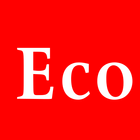
2016-1022 | The Economist-042
介绍: Ukraine’s rock-star politician: Front man
A pop star tries to help a country at war reinvent itself
From The Economist 20161022
Audio:
0:00
Unacknowledged legislator
THE crowds in Mariupol, a factory town on the front line in eastern Ukraine, began lining up at six in the morning. It was late spring, ...
介绍: Ukraine’s rock-star politician: Front man
A pop star tries to help a country at war reinvent itself
From The Economist 20161022
Audio:
0:00
Unacknowledged legislator
THE crowds in Mariupol, a factory town on the front line in eastern Ukraine, began lining up at six in the morning. It was late spring, and the rock group Okean Elzy were playing. “You might only see them once in your life,” said a young boy in line. Some 30,000 people turned out to see the band and its front man, Svyatoslav Vakarchuk (pictured). “He’s now the voice of the younger generation, the voice of the agents of change,” says Yaroslav Hrytsak, a Ukrainian historian.
Mr Vakarchuk is the son of a physicist from Lviv in western Ukraine, and his most significant recent performance was not a concert but a speech marking his return to the political arena. (He served a one-year stint in parliament between 2007 and 2008.)
Taking a stand against the identity politics that Ukrainian leaders have long used to distract from failed reforms, Mr Vakarchuk articulated a vision of Ukrainian identity for the 21st century. “We need to stop building a state based on blood patriotism, and begin building a state based on constitutional patriotism,” he declared. “We shouldn’t be united by a common past, heritage, blood or appearance, but by a common set of values, lifestyles, rules and a constitution.”
Throughout Ukrainian history, “the main articulators of identity have been writers and poets,” Mr Hrytsak explains. “Most have been very strongly ethnically inclined.” Taras Shevchenko, whose poetry helped codify the modern Ukrainian language in the mid-1800s, propounded an ethnic nationalism that divided Ukraine from its imperial Russian masters. “Fall in love, you dark-browed girls, but not with Moskali,” he warns in “Kateryna”, using a Ukrainian slur for Russians. “For Moskali are strangers / They will do you wrong.”
For post-Maidan Ukraine, Mr Vakarchuk wants to replace this ethnic nationalism with a more civic sort, to overcome the regional divisions that have hamstrung the country’s development. “The problem is that both those who speak Ukrainian and those who speak Russian are stealing,” says Mr Vakarchuk. “We should be joined by the desire to build a just society.” Yet the more Ukraine’s reforms falter, the more politicians exploit divisions over history and language. “The worse things get for the living, the more we talk about the memory of the dead,” says Mykhailo Minakov, a political philosopher.
Many of Mr Vakarchuk’s fans, longing for an inspiring leader, hope that he will return to politics. President Petro Poroshenko’s administration has already commissioned polls on him, preparing for his appearance as a potential rival, reports Ukrainskaya Pravda, a news site. But Mr Vakarchuk insists he can accomplish more with his music. As he sings in “Not Your War”, a new hit released last year: “A battle at dawn, sun and smoke / Few know what will become of it / What will fill tomorrow’s young minds / For some there is hope, for others fear.”
Copyright © 2015-2016 Share2China.com | Powered by Flask and MongoDB
